The longest six seconds: Alaphilippe's complicated path back to the Tour de France yellow jersey
'We can't blow the whole team before we hit Paris,' says Steels
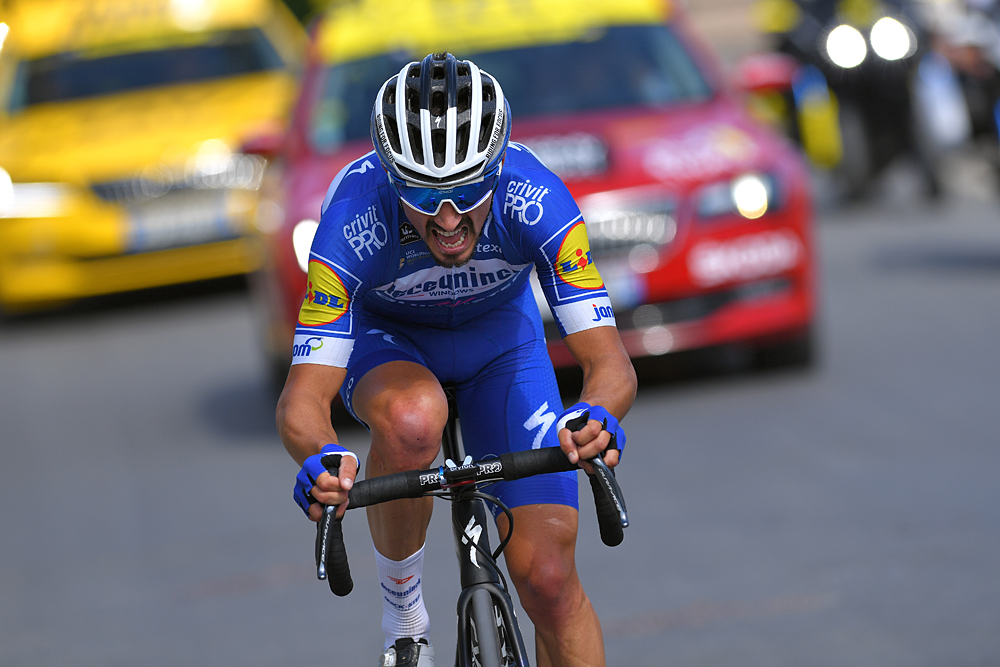
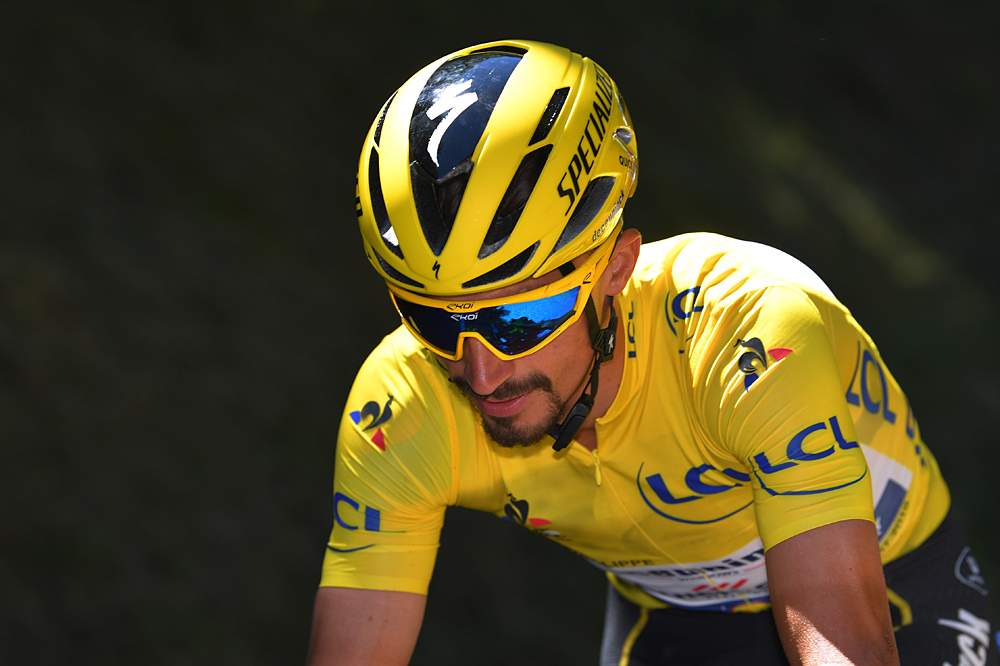
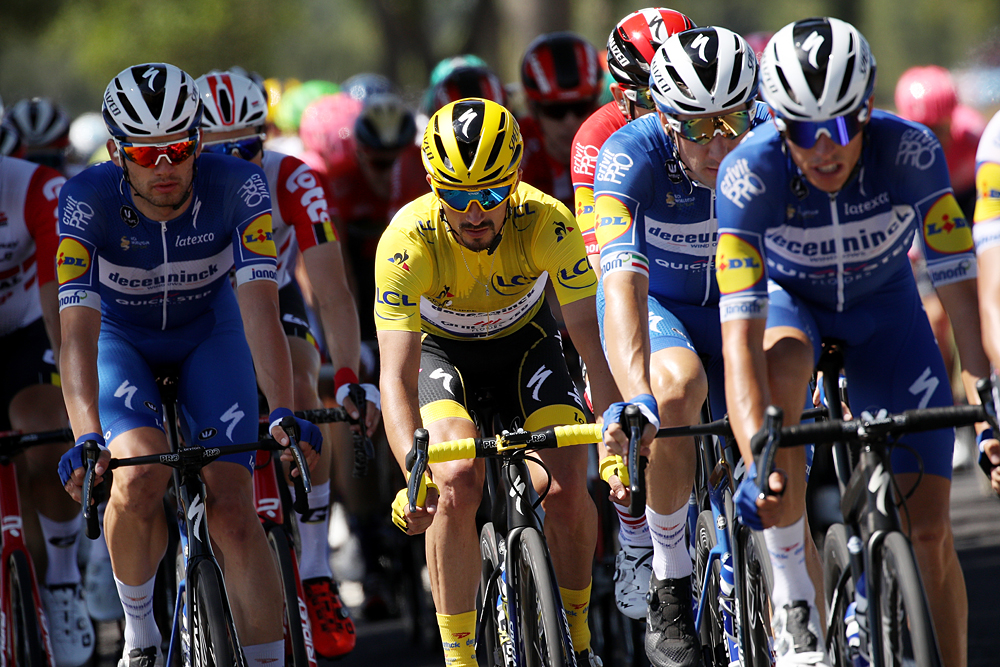
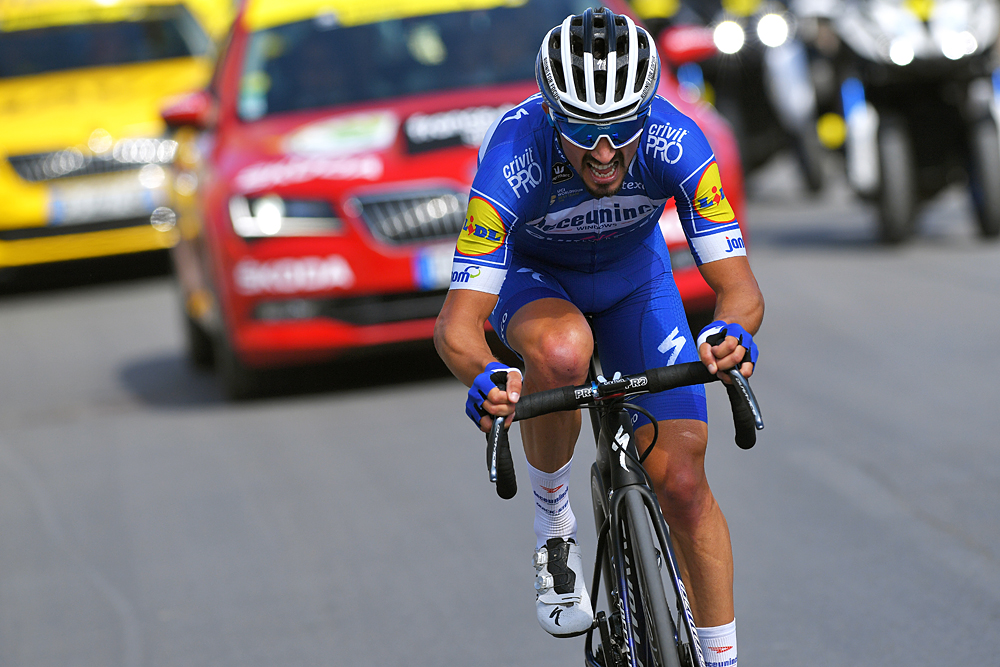

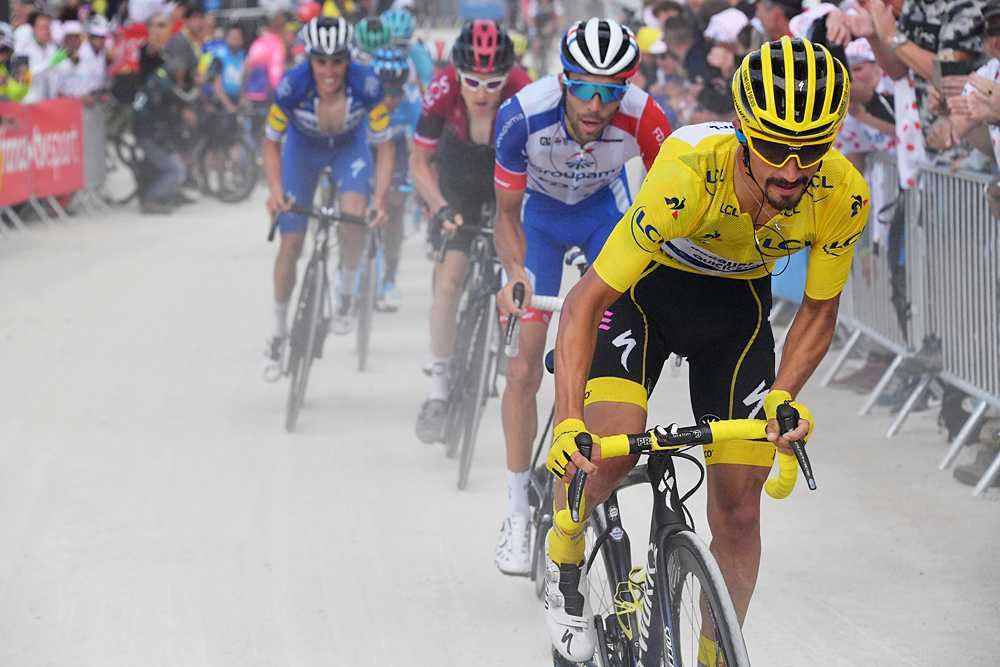
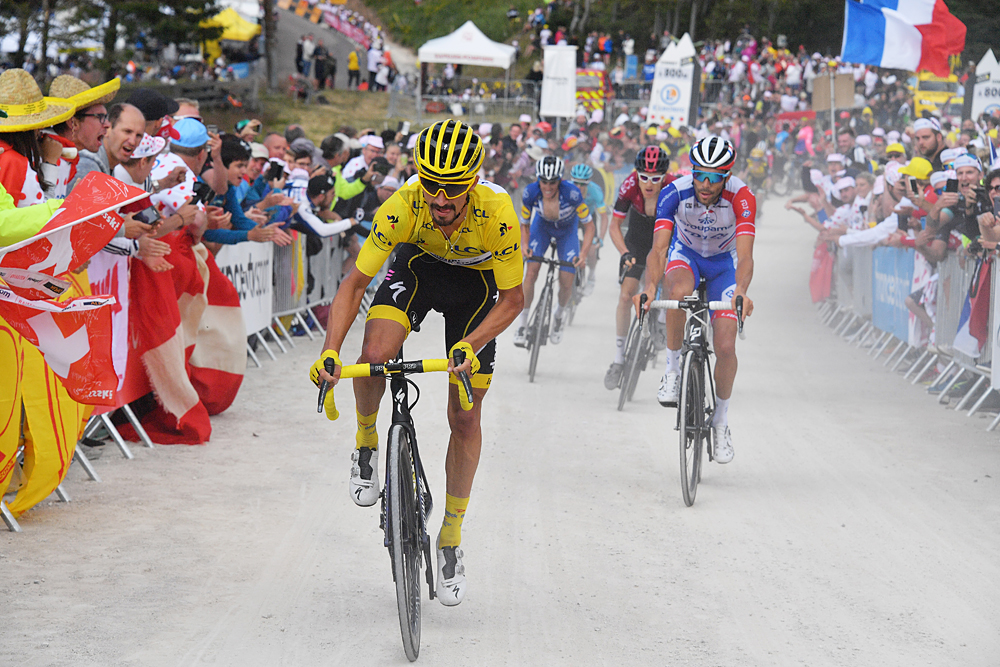
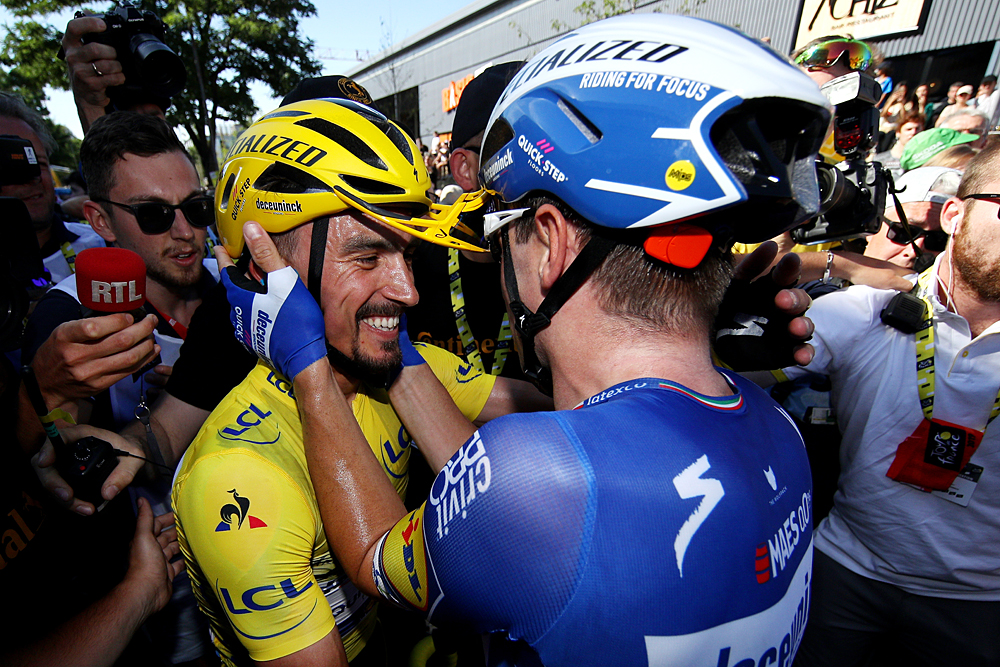
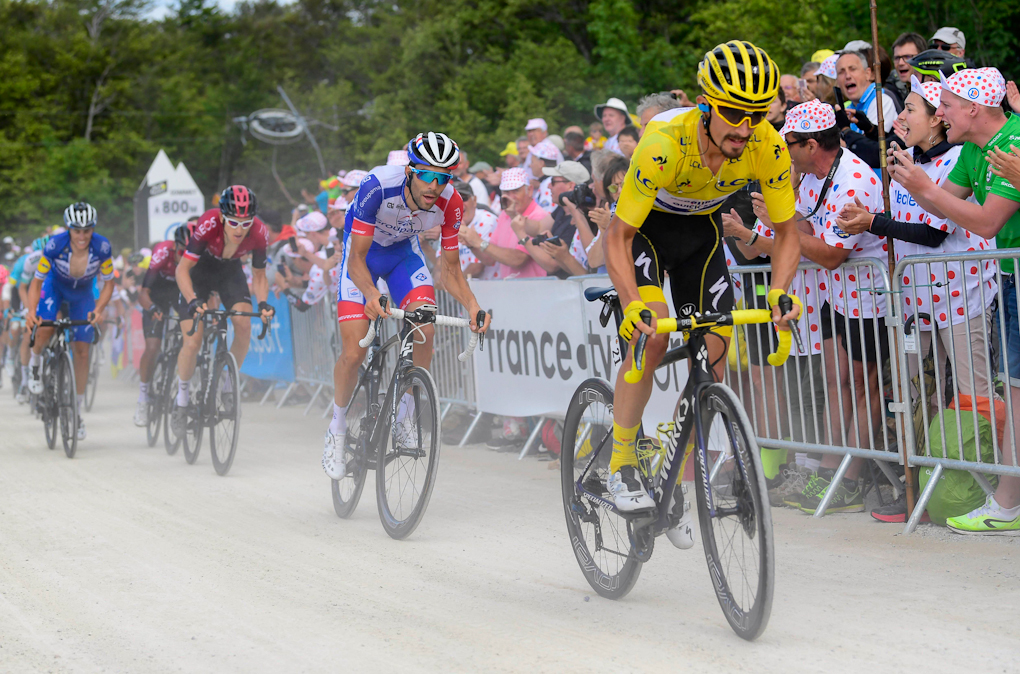
Julian Alaphilippe was back in his usual blue attire ahead of stage 7 of the Tour de France on Friday morning, but the ovation in Belfort was still worthy of a maillot jaune. His emergence from the Deceuninck-QuickStep bus was acclaimed by gleeful cries of 'Julian, Julian!' and his progress towards the signing-on podium could be tracked by the ripple of noise that washed over the crowds lining the Boulevard du Maréchal Joffre.
At La Planche des Belles Filles the previous afternoon, Alaphilippe had endured the disappointment of losing his yellow jersey by a mere six seconds to Giulio Ciccone (Trek-Segafredo), and the frustration of doing so after a display that exceeded all expectations on the first mountain stage of the race.
The Frenchman had held up his end of the bargain by climbing comfortably among the general classification contenders through the tree-lined Vosges, and then leaving the bulk of them trailing in his wake when he launched a blistering acceleration on the vertiginous slopes of the so-called 'Super Planche,' the final kilometre of dirt road that led to the finish.
The damage was done earlier in the stage, however, when Ciccone and the strongmen in the early break were allowed a maximum advantage of eight minutes over the peloton. A Deceuninck-QuickStep team that spent so much of the week riding to tee up Elia Viviani's sprints – not to mention Alaphilippe's stage-winning attack at Épernay – simply lacked the climbing manpower to keep the move's lead under control.
"I think we knew with the setup of the team that we would be vulnerable on those kinds of stages. We could control the race, but we hit our limits. Without support from the GC teams, we knew it could be difficult – and it was difficult," directeur sportif Tom Steels told Cyclingnews in Belfort on Friday.
The normally effervescent Alaphilippe wore an unusually flat mien atop La Planche des Belles Filles when he learnt that he had lost his jersey by such a narrow margin to Ciccone, who picked up a 6-second bonus for placing second on the stage. Come Friday morning in Belfort, however, Alaphilippe insisted that any disappointment had been archived.
"I didn't have too much information, I heard nothing on the radio. So I just tried to do good and follow the best," Alaphilippe said after signing on. "In the end, I tried to attack but I lost the jersey by 6 seconds, so it's like this. I'm not really disappointed now, I'm just looking forward even more to the next days.
Get The Leadout Newsletter
The latest race content, interviews, features, reviews and expert buying guides, direct to your inbox!
"It was an incredible experience to have the jersey and I'm still not too far away from it. there's a lot of things to do."
Steels acknowledged that Alaphilippe's satisfaction at his remarkable climbing display was tempered by his frustration at losing the maillot jaune, but the Frenchman dismissed the idea that his team could have done more to keep tabs on the break. The self-styled Wolfpack giveth, but the self-styled Wolfpack's wide-ranging appetite sometimes taketh away. So it goes.
"The team controlled everything very well, it was just that the break was too strong and we don't have a team oriented around controlling a stage like that," Alaphilippe said. "We ride every day, for the sprints, for Elia, for me… Voilà, it's not easy. The other teams only started riding in the final when there's already too much of a gap."
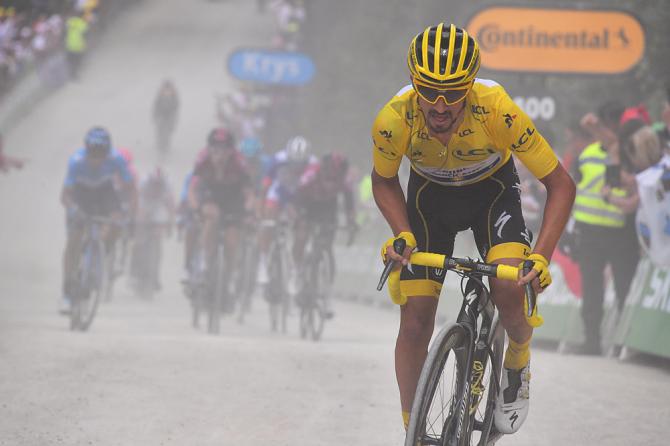
Time bonuses
Alaphilippe's grasp on yellow may have loosened, but the jersey remains within touching distance, and the terrain in the Massif Central this weekend seems particularly amenable to his pugnacious style. The finale of stage 8 to Saint-Étienne features an 8-second time bonus atop the Côte de Jaillère, and the same prize - enough to lift him above Ciccone - is on offer on the Côte de Saint-Just the following day. The problem, Steels explained, is that Deceuninck-QuickStep cannot control the race by themselves on such rugged terrain.
"The next couple of stages are really hard, they're really made for breakaways, so to try to control the race, that's something else," Steels said. "We've been in the lead every day since Brussels and I must say that we don't have six guys to pull.
"We have to take care that we don't blow the whole team before we hit Paris. We have a lot of objectives and that's a good thing, but it's also a hard thing to do. Guys like Kasper Asgreen and Yves Lampaert really have to always be there and dig deep to control the race. That's hard. They're only human, and we also have to take care of them."
Alaphilippe had a cameo in support of Viviani (6th) ahead of the bunch sprint in Chalon-sur-Saône on Friday afternoon, but he was coy about his tactical approach to the weekend doubleheader in the Massif Central. Asked if he had a plan to get the yellow jersey back, Alaphilippe was laconic: "I hope so, yes."
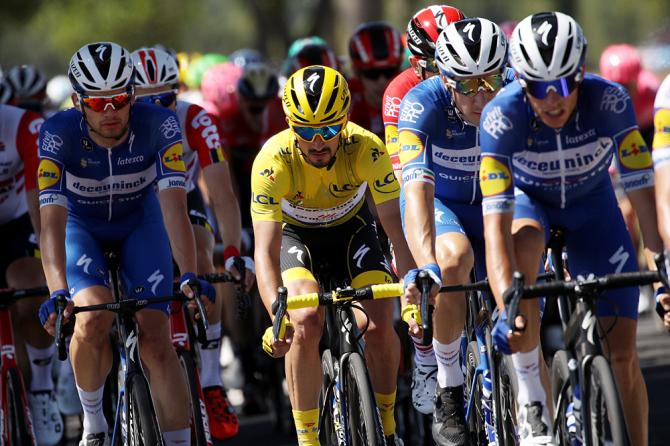

Barry Ryan was Head of Features at Cyclingnews. He has covered professional cycling since 2010, reporting from the Tour de France, Giro d’Italia and events from Argentina to Japan. His writing has appeared in The Independent, Procycling and Cycling Plus. He is the author of The Ascent: Sean Kelly, Stephen Roche and the Rise of Irish Cycling’s Golden Generation, published by Gill Books.